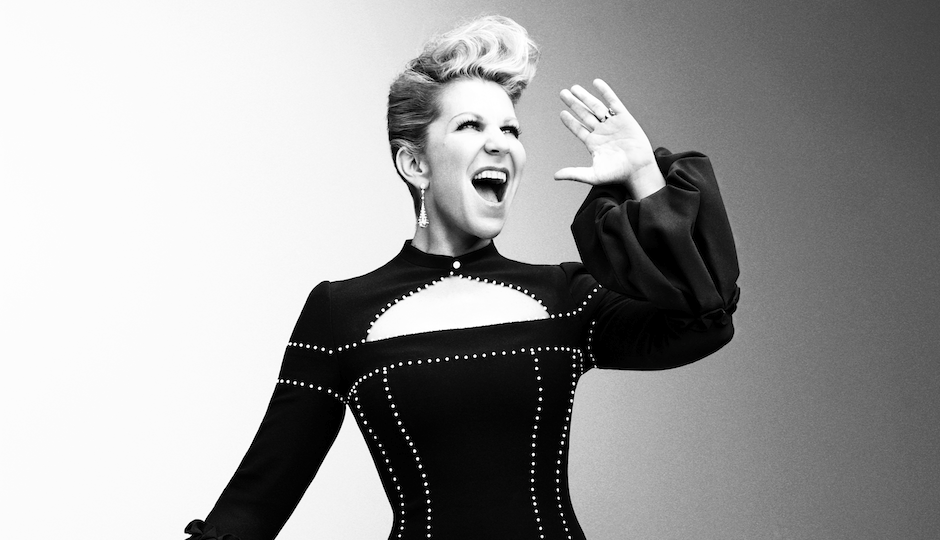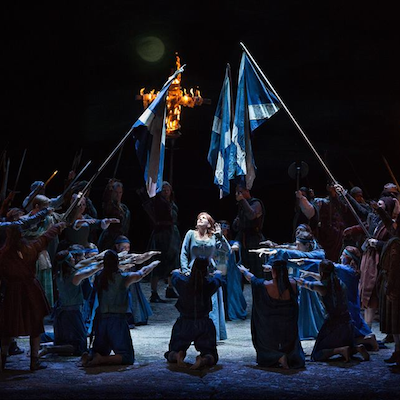Philly-Trained Opera Star Creates New Program to Inspire High School Opera Lovers

Photo: Pari Dukovic
Joyce DiDonato worked three jobs while attending Philadelphia’s Academy of Vocal Arts (AVA): She was a singing waitress at Victor’s Restaurant, the choir director at a Presbyterian church in Landsdale, and did cold-calling to raise funds for the Philadelphia Singers.
“And I still had no money!” she tells me. “But my favorite thing was walking to the Italian Market with $5 in my pocket and coming back with enough fruit and vegetables to last me through the week, and stopping by one of those carts and for $1 getting two pretzels and a Diet Coke.”
But it was that training at AVA, which the Grammy winner calls “hard, but fantastic,” that she credits for the success she’s had today, singing at opera houses around the globe. I’m speaking to her while she’s in New York, where she’s reprising her critically acclaimed depiction of the title role in Rossini’s La Donna Del Lago at The Met. But underneath the $300 tickets, the opening night galas, the glamour of it all, DiDonato believes that her journey to opera has a much higher calling.
Take last week, for example: DiDonato opened La Donna Del Lago and the next day headed to the Sing Sing Correctional Facility, the famed high-security prison in New York, not because she did any crime, mind you, but because she was part of a Carnegie Hall program that teaches inmates classical composition. And, yes, three of the inmates have written arias for her that she’ll be performing for 300 of the men at a concert.
“I come home, and the first thing I think is, ‘I’ve got to tell the kids about this!'” she says.
The “kids” she’s referring to are the high school students she’s reaching out to in her other advocacy program called Opera Rocks. It’s a newsletter targeted to youth who enjoy opera, and its goal is to make connections to young people who may feel somewhat isolated or alienated due to their love for the art form.
“One of the things I learned from the social media aspect of what I do is that I’ve naturally had this magnet to younger people,” she says. “Suddenly, I have high school students on Twitter saying that I’m their destination for opera. These kids are hooking up on social media from Boston to Idaho, but they’re isolated in their own schools. They just feel like they need a morale boost, so I thought, let’s connect some cool people who are interested in the opera. Let’s just connect some of the dots here.”
“Look, everyone’s talking about ‘Oh, what’s happening to the opera?'” she adds. “I’ll complain about that, too, but what am I doing about it? I’m not going to change the industry with Opera Rocks, but it will help.”
That’s were DiDonato’s recent experience at the prison ties in.
“[The prisoners] are just like those students,” she says. “They feel kind of lost, trying to make sense of the world. Music serves as the connective tissue. It make them feel less isolated. It’s the same experience in radically different contexts.”
The second edition of Opera Rocks hit the interwebs this week, titled “You Can Change the World,” and DiDonato established some extremely important notions about how art can ultimately serve as an ability to “give back.”

Joyce DiDonato in “La Donna Del Lago.”
“The reason they’re attracted to opera is because they are curious about the world and they are smart and eager,” she says. “I want to tell them that I know they want to be opera singers, and they’ll be consumed for a really long time with questions about how they sound and if they’re good. That’s all great, but, there’s a higher purpose here. There’s a higher good. The art and your voice isn’t the whole game. I want this to be the driving force which reveals that the world still needs this. It always has, but now it needs it even more.”
She continues this, of course, while prepping for the rest of her season, which includes recitals in Amsterdam, Vienna, and Madrid (amongst others), playing Romeo in I Capuleti e i Montecchi in Barcelona, and returning to London’s Royal Opera House to play Charlotte in Werther, both works classics, or, as DiDonato puts it, they are the “masterpieces of creative geniuses who have left these little breadcrumbs.”
“There’s a sense of responsibility,” she says. “I wouldn’t put that on every artist, and with all due humility, my nature is that I want to do more with what I have. I think it’s more than opera for opera’s sake. I think opera can connect people, and that’s my purpose. I want people to understand and to have an avenue to express this stuff in their everyday lives, and to realize that the fine arts point us in the direction to show the potential of the human spirit.”
Students can sign up for “Opera Rocks” by visiting this website.


